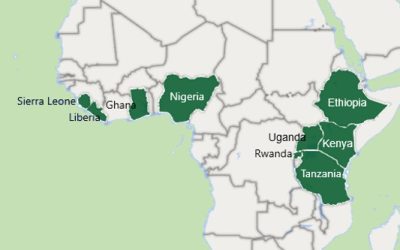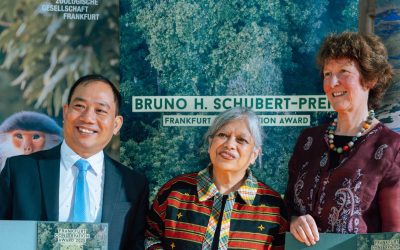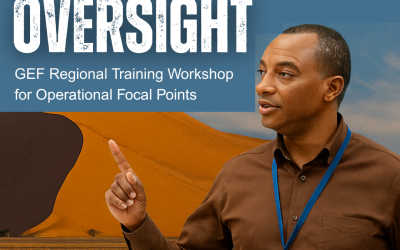A training course that TBA co-organised with the Critical Ecosystem Partnership Fund (CEPF) in Kenya has given conservation managers working at grass roots level new skills to raise the impact of projects designed to protect critically endangered species – including mountain gorillas – and to improve local livelihoods.
The project managers, who have all received funding from CEPF since the course, are now ready to ensure that their new grants will achieve maximum impact on the ground.
Many funders know that civil society organisations are often ideally placed to make a difference in conservation. Wise funders also understand that the money they give will have greater impact when the recipients have the skills they need to design and implement effective projects right from the start.
That’s why the CEPF asked the TBA to work with them to deliver a five day course for grant applicants who had applied for CEPF funding for a range of projects in East Africa’s afromontane region – a biodiversity hotspot.
The eight applicants from three countries, had been identified as strong candidates working in key areas, but CEPF knew that capacity building at the outset would ensure that their project proposals were robust, realistic and achievable within the funding timeframe: key criteria for receiving funding.
“Our course covered project design, measuring impact and – crucially – how to communicate this impact to decision makers and stakeholders,” said Dr Rosie Trevelyan, TBA Director, who led the training.
“We do this through the ‘Theory of Change’ approach,” she explained. “In essence this means identifying what you want your project to achieve and then making sure that all activities and outputs are designed to reach your goal.”
Coupled with this, the course covered what indicators of success to use along the way, to measure progress and impact. The impact of the course was immediate: all the participants modified their project proposals, mainly because they realised they had been focussing on issues that were not linked to the desired end goal.
“I have never been to training like this before,” said Methodius Mukhwana, of Uganda’s African Wildlife Foundation “I feel like I have done a whole university course in one week. I now know how to design a project to make sure it has the impact that really matters.”
Medard Twinamatsiko, from Mbarara University said: “Learning about the theory of change was an eye opener. Rosie Trevelyan helped us to see where we could improve our projects and take a critical look at the assumptions we have made.”
For Dr Trevelyan, these reactions underline the value of capacity building in successful conservation. “You cannot beat face-to-face training and one-to-one advice during a course which is tailor made for those present,” she said.
Bringing small groups of people together at a critical time in project management also creates the opportunities to share experiences of managing similar sized projects. A common thread for all the course participants is bringing together local communities and management authorities to collaborate in managing their natural resources to improve livelihoods and protect wildlife.
Medard Twinamatsiko’s project plans to set up a co-management programme between the Batwa communities who live on the fringe of the Bwindi Impenetrable National Park and the Uganda Wildlife Agency. Home to half the world’s critically endangered mountain gorillas, the park is a Key Biodiversity Area of huge international importance, and a UNESCO World Heritage Site. Two other projects were also concerned with working with communities living beside national parks. A forth was about the management of an important, yet unprotected, lake in central Kenya.
Within just one week of the course ending, all the revised proposals had been approved. Crucially, eight project managers now know just what to do to make sure that the CEPF grants they receive will have maximum impact on the ground.





